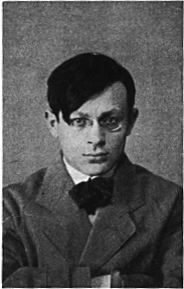
I have to say... most of the artists of those time did not focus on just one art form. They explored and used different mediums which kind of says a lot about this generations artists... not that I'm belittling our generations artists because they are great and wonderful as well, or maybe I just haven't met a lot of artists who are not just writers and are not just painters but are a mesh of these different realms of art. Artists that are both poet and painter, both fictionist and musician. But maybe, it was because those were post-WWI artists and as we all know, tragedy brings inspiration. No matter how morbid it sounds, it inspires. Tragedy inspires one to write, to protest, to assess one's life; it drives people towards either self actualization or to complete utter destruction. Happiness does inspire, but for me, it does not inspire as strongly as tragedy does.

Back to Jean Hans Arp, he is a French sculptor, painter, collagist, printmaker, and poet of German birth. Although he is more known for his paintings and sculptures. He is said to be one of the founders of Dada in Zurich. But since I am more interested in his poetry and I had to read other Dada writers to get what this movement is about, -- plus, I wanted to distract myself from studying and feel like I did something I liked -- I went on to search some of his poems and then came across this particular piece: The Plain.
The title is actually really representative of the work. It was plain, simple that is which I've always liked in poems. I never really thought I'd like Dada because I'm always at my wits end trying to decipher whether they mean more than what the purport to present... but this particular piece gives me hope that maybe I'd find more pieces from Dada literature that will make me more inclined to explore this movement and eventually come to understand it.
The Plain
| I was alone with a chair on a plain Which lost itself in an empty horizon. The plain was flawlessly paved. Nothing, absolutely nothing but the chair and I were there. The sky was forever blue, No sun gave life to it. An inscrutable, insensible light illuminated the infinite plain. To me this eternal day seemed to be projected -- artificially-- from a different sphere. I was never sleepy nor hungry nor thirsty, never hot nor cold. Time was only an abstruse ghost since nothing happened or changed. In me Time still lived a little This, mainly, thanks to the chair. Because of my occupation with it I did not completely lose my sense of the past. Now and then I'd hitch myself, as if I were a horse, to the chair and trot around with it, sometimes in circles, and sometimes straight ahead. I assume that I succeeded. Whether I really succeeded I do not know Since there was nothing in space By which I could have checked my movements. As I sat on the chair I pondered sadly, but not desperately, Why the core of the world exuded such black light. Jean Hans Arp Poem source: http://www.poemhunter.com/poem/the-plain/ |



